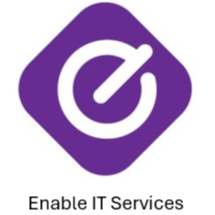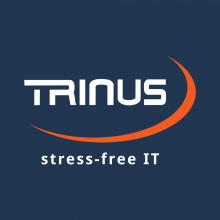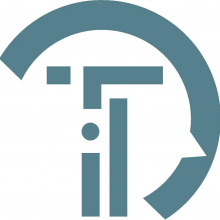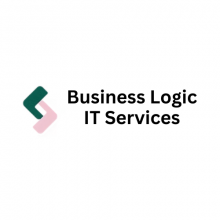
There are 36 Companies in Canada
that provide Hardware Services!
There are over 43,200 companies in the Canadian Information and Communications Technologies (ICT) sector. The large majority (over 39,000) fall within the software and computer services industries.
Discover Top IT Companies in Canada specialized in Hardware and other related services. Find the best IT service providers for your projects.
Hardware service is an aspect of IT management that specifically deals with the physical components of information technology. The process encompasses hardware acquisition, continuous maintenance throughout its lifespan, and responsible disposal of outdated parts. Expert hardware asset managers collaborate with various departments and stakeholders across all levels within an organization. According to recent statistics, up to 30% of the total IT budget is spent on hardware, software, and related maintenance and support expenses.
Handpicked companies • No obligation to hire • 100% risk-free
Featured Companies in Canada
This month, the following Hardware companies managed to provide an outstanding service and support. It's worth taking a look.
FlairsTech is a technology-driven Managed Services Provider (MSP) operating from five offices on three continents, serving over 100 global clients.
Explore Top Hardware Companies in Canada
Digital Link is pleased to deliver managed IT solutions, web design and digital marketing services to clients across Canada.
Services:
K2 Networks is a Full-Scale IT Consulting firm that specializes in providing Managed IT Services, Cybersecurity, and Strategic IT Consulting Services.
Services:
IT Consulting, Managed IT Services and IT Support, and Cybersecurity for growing, mid-size, and enterprise businesses in North America.
Enable IT Services, based in Perth, provides managed IT services, cybersecurity, and cloud integration for reliable IT infrastructures.
Services:
Empowering businesses with innovative IT solutions, cloud services, and digital transformation.
Cybersecurity, Managed IT and Cloud Hosting solutions that bring you peace of mind.
Services:
One Piece IT delivers tailored IT support, cybersecurity, and web solutions to help Calgary businesses grow securely and efficiently.

Telepathy Infotech Verified Company
BRITISH COLUMBIA, Canada Head office in: United States
We are a dynamic software company committed to crafting innovative solutions that empower businesses to thrive in the digital age.
Montreal IT Company: Expert IT Services & Security Solutions
Services:
Empowering Airdrie businesses with managed IT, cybersecurity, cloud solutions, and consulting since 2008. Trusted, tailored, and innovative.
Services:
Empowering businesses with secure IT, cybersecurity, and cloud solutions across Canada, the US and Greece.
Services:
Your Partner in the IT and tech Space In Iraq
Your Digital Partner for Growth
Providing Secure, Managed IT services and support to municipalities, SMBs, Medical Clinics and NFP's across Alberta, BC and Saskatchewan.
Services:
The ACT360 full-service team of IT experts proactively researches, installs and maintains cutting-edge technology for businesses in the Barrie and the...
Services:
Serving Information. Simply.
Services:
Leader in information management and digital services, creating competitive advantage for over 1.4 million businesses across the globe.
Services:
Business Logic IT Services delivers professional network setup services in Vancouver
Services:
Managed IT Services
Geeks Worldwide Solutions is a renowned Managed IT services company providing services globally.
Services:
- 1
- 2
Filter Hardware Companies in Canada by Cities
Find the right tech company near you or from a specific city. Some of the best companies might be located in smaller cities.
Find more Hardware companies around the world
TechBehemoths is the world's most advanced and user-friendly platform to match IT Companies with real clients without hustle.
Canada IT Industry: Companies and General Profile
Canada IT Industry: Companies and General Profile
There are over 43,200 companies in the Canadian Information and Communications Technologies (ICT) sector. The large majority (over 39,000) fall within the software and computer services industries.
The ICT sector consists mainly of small companies, with approximately 37,500 of them employing fewer than 10 people. The number of large companies employing over 500 individuals accounts for approximately 105 firms, including subsidiaries of foreign multinational corporations.
In a more industry-narrow way, the Canadian advertising and marketing industry is growing based on international awareness of creativity and the multicultural population. The progressive approaches are resonating with both US and globally-based companies, Mark Tharme from Muse Marketing says.
Why You Should Work With Canadian IT Companies
Canada has found itself in a favorable position compared to other countries that have a well-developed IT infrastructure. Web & IT agencies have a fast-developing rate due to facilitating policies and attracting more young professionals than any other country in the region.
Additionally, IT companies in Canada provide a full-service range with a considerably lower price than in the U.S., and offer in exchange excellent execution, fair customer experience, and professional project management.
From another perspective, working with Canadian IT companies could bring added value in terms of security. In uncertain times, both politically and economically, working with IT companies in Canada reduces technology risk.
What You Should Be Aware of When Working With Canadian IT Companies
The Canadians started to focus on developing their IT industry in 2012, which mainly reveals a lack of consistent experience in the web & software industry. Since almost all IT companies in Canada are small, with fewer than 10 people, the industry is in the full development process, and most of the agencies are not yet ready to take on big projects. Since then, the Canadian IT industry has rapidly evolved with major tech hubs like Toronto, Vancouver, and Montreal by 2025.
At the same time, Canadian companies pay a living wage, and our standard of living is higher than in many other countries. As a result, expect the cost for services to be somewhat higher than in emerging economies.
Are Canadian Web Companies Reliable?
Along with the workforce, Canada attracts an increasing number of companies from around the world, and many of them find the place comfortable and suitable for growing a business in the IT industry. In 2025, there were more than 7,000 IT startups in Canada, according to StartupBlink. Small companies in the Canadian IT industry are new entries and don’t have a global reputation compared to tech giants that relocated or opened new offices in Canada. Nonetheless, you cannot name small Canadian IT companies unreliable, as they all obey the same principles and rules as the bigger ones.
How the Canadian IT Industry Compares to the Neighboring Countries
With the leading US on the continent and probably globally, Canada started to get more attention from the market as being a healthy alternative to what the US has to offer. This refers both to skilled developers & web designers and also clients. Due to the market accessibility and developed IT infrastructure, Canada has its own advantages over the US, like prices and availability, but it’s still behind the U.S in terms of competitiveness.
Overall, Canada is a promising destination for IT companies and a good option for web projects with a growing number of IT centers. The Toronto - Kitchener - Waterloo IT area registered good progress both in training and hiring new talents that compete even with the US Silicon Valley.
What Makes Canada Attractive for IT Companies?
Canada is attractive because the society embraces a global mindset, which is natural due to the multicultural population, both in the industry and in the general population. Historically, the Canadian design and advertising industry was built on American, European, and Japanese cultural influences. Today, the country benefits from influences from all over the world.
At the same time, Amanda Nelson from The Art Of Business mentions that Canada has found itself in a favorable position compared to other countries that have well-developed IT infrastructure. Web & IT agencies have a fast-developing rate due to facilitating policies and attracting more.
How Does the Canadian Government Support the Local IT Sector?
Federally, the Canadian government is providing access to capital through grant programs, including digital transformation grants for businesses, which in turn creates opportunities for digital marketing and IT firms as service providers.
Alberta and Ontario - The Best Canadian Territories/Provinces For IT
Out of 10 Territories and Provinces, Canada is divided. There are 2 worth mentioning - Alberta and Ontario, with Calgary and Toronto as the main tech hubs.
The Toronto/Hamilton business corridor (known as the GTHA) is growing rapidly, both in population and as an international business centre. It already has the highest-density population in Canada and is projected to grow significantly by 2050. With close proximity to Northeastern US markets, high awareness of the city of Toronto as an international destination, and an excellent culture of creativity across all disciplines, this area is well-positioned for growth. Immigration policies are also favorable for companies seeking a location in North America.
In addition, according to Ty Mikitka from Vertical Motion Inc., in recent years, Calgary, Alberta, has made growing strides to become a recognized Western Canadian technology hub thanks to the influx of large technology companies. Notable organizations, including Unity Technologies, Infosys, Test Driven Solutions, RBC Innovation Hub, and Amazon Web Services (Late 2023-Early 2024), now call Calgary home, creating thousands of IT jobs for local Canadians.
"Canadian IT Talent Pool is Good to Excellent"
When talking about the Canadian talent pool, Mark Tharme appreciated the local talent pool as good to excellent. He thinks that IT and communications-related education is available at all levels: colleges, universities, and private schools offer courses in a wide range of information technology disciplines. Students have opportunities to do work placements, co-ops, and internships with many well-regarded companies while studying or upon graduation from a recognized program.
Plan to Open a New IT Business in Canada? Focus on New Technologies!
Local tech leaders also mention that there is enough room in the market for new, innovative companies. However, most of the opportunities are especially in new and emerging technology areas, including AI, cybersecurity, and data management. Canadian companies are "punching above their weight" in many of these areas. Another sector good to explore is security. As Justin Harney from LionEater, the country needs IT security leadership.
As for how easy it is to open a business in Canada, Jeffrey Miles from Jeff Social Marketing mentions that it’s simple to open a business in Canada. The first step is to apply for a business license.
This article was created together with professionals coming from reputable Canadian IT companies. Special credits: Jeffrey Miles, Mark Tharme, Justin Harne, Ty Mikitka, and Amanda Nelson.
What is Hardware and what are its benefits for your projects?
Hardware service is an aspect of IT management that specifically deals with the physical components of information technology. The process encompasses hardware acquisition, continuous maintenance throughout its lifespan, and responsible disposal of outdated parts. Expert hardware asset managers collaborate with various departments and stakeholders across all levels within an organization. According to recent statistics, up to 30% of the total IT budget is spent on hardware, software, and related maintenance and support expenses.
Primary Categories of Hardware Asset
Hardware asset are generally grouped into four primary categories:
- End-user devices - Employees use a variety of devices in their everyday work, including computers, smartphones, tablets, SIM cards, and other similar gadgets.
- Network and telecom hardware serve as support equipment for facilitating both digital and analogue communication. This category includes various devices such as routers, load balancers, switches, as well as telephone and video conferencing systems.
- Data-center equipment are hardware that enables the effective functioning of data centers. This includes servers, utilities, and security devices.
- Peripherals are essential equipment that provides support in modern office environments. They come in various forms such as scanners, printers, monitors, keyboards, headsets, projectors, and even cables and adaptors.
What are the Benefits of Hardware Services
Business hardware may not always appear to be a secure investment. It tends to lose value rapidly and require regular maintenance and occasional repairs. However, implementing effective hardware asset management can help reduce these downsides.
The advantages of hardware services include the following:
-
Improved loss prevention - Loss prevention is enhanced through improved accuracy in hardware catalogues. These catalogues enable effective tracking of equipment, identification of missing parts, and mitigation of risks. Additionally, asset tagging, ownership records, and location tracking facilitate the identification of idle assets, ultimately reducing theft risk.
-
Enhanced productivity - Implementing a strategy for managing hardware assets, employees are able to efficiently handle equipment, prevent inefficient processes, and automate procedures. This ensures accurate inventory and distribution while also preventing asset issues before they arise.
-
Optimized usage - Effective management practices for hardware and well-structured maintenance schedules ensure the proper utilization of company equipment. Also, accurate asset inventories help prevent unnecessary spending, ultimately increasing the value of hardware investments.
-
Increased security and compliance - Managing hardware assets offers a thorough inventory of all hardware assets and assists security teams in securing hidden assets, spotting vulnerabilities, and verifying policy compliance.
-
More-efficient lifecycle management - Businesses benefit from HAM's comprehensive asset lifecycle control, which facilitates informed decision-making for asset managers regarding vendor contracts, servicing options, and replacements.
- Cost savings - Here are a few ways that managing hardware assets can help your company save money:
- Lower maintenance expenses;
- Hardware budgets that are more precise;
- Minimal hand work;
- Less hardware expenditure;
- More effective disposal methods.
When organizations invest in effective hardware asset management, they gain lots of advantages. These benefits include saving time and money, as top-quality HAM systems and strategies quickly prove their worth.
Are you in search of a hardware asset service provider? Your search ends here with TechBehemoths! Our platform has a vast selection of over 323 worldwide companies that provide effective hardware asset management.
To make your decision easier you can use smart filters based on location, price, and reviews. In case you require additional help, simply submit your project and our team will assist you in finding the ideal service provider for your specific needs.






















